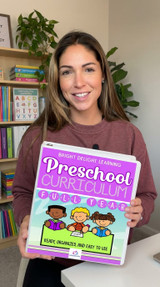How to Start Reading the Bible for Beginners: Your Simple, Step-by-Step Guide
Let's be real for a hot minute-you've probably stared at that Bible on your shelf (or downloaded that Bible app) feeling like you're about to climb Mount Everest in flip-flops. Maybe you've cracked it open before, read "In the beginning God created..." and then BAM! Suddenly you're drowning in a sea of "begats" and wondering if you accidentally picked up a phone book from ancient times.
Here's the thing: you're not alone, and you're definitely not crazy for feeling overwhelmed. The Bible is a big book—actually, it's 66 books wrapped into one epic collection. But here's what nobody tells you: you don't have to be a seminary graduate to dive in and actually get something meaningful out of it.
This guide is your no-nonsense roadmap to starting your Bible reading journey without the intimidation factor. We're going to break it down so simply that you'll wonder why you waited so long to get started.
Why Is It Hard to Start Reading the Bible?
Before we jump into the "how," let's acknowledge the elephant in the room. Starting to read the Bible can feel like trying to understand a foreign movie without subtitles. Here's why most people get stuck before they even begin:
The Overwhelm of Size
Seriously, have you seen how thick this thing is? The Bible contains 783,137 words (yes, someone actually counted). That's like reading four average novels back-to-back. No wonder people feel intimidated! But here's a secret: you don't have to read it like a novel from cover to cover.
Complex Language and Ancient Vibes
Unless you're fluent in ancient Hebrew customs or get excited about genealogies that sound like tongue twisters, some parts of the Bible can feel like reading a history textbook written in Shakespearean English. The cultural context is thousands of years old, and sometimes it shows.
Lack of Context (And Where the Heck Do I Even Start?)
Opening the Bible randomly is like jumping into the middle of a Netflix series at season 4, episode 12. You're missing crucial backstory, character development, and plot points. Without context, even the most beautiful passages can seem confusing or irrelevant.
Feeling Unqualified
Here's the biggest myth that stops people: "I'm not smart enough" or "I'm not religious enough" to understand the Bible. Listen, friend—the Bible wasn't written exclusively for pastors and theology professors. It was written for regular people dealing with regular life stuff, just like you.
Your Beginner-Friendly Approach: Start Simple
Forget everything you think you know about "proper" Bible study. We're throwing out the rulebook and keeping it refreshingly simple.
Focus on Relationship, Not Rules
The Bible isn't a textbook you need to master for a final exam. It's more like reading letters from someone who loves you deeply and wants to share life with you. Approach it like you're getting to know a friend, not cramming for a test. Some days you'll read something that hits different, other days you might think "okay, that was weird." Both reactions are totally normal.
Consistency Over Quantity
Would you rather read one verse every day for a month or try to read 50 chapters in one sitting and then give up? Yeah, exactly. Five minutes of consistent reading beats a two-hour marathon session that leaves you burned out. Think of it like going to the gym—showing up regularly matters more than how much weight you lift on day one.
Prayer Before Reading (Yeah, It Actually Helps)
This might sound too "churchy," but stick with me. Starting with a simple prayer like "Hey God, help me understand what I'm reading today" actually works. You're not performing some magical ritual—you're just acknowledging that you might need some help understanding ancient wisdom. It's like asking for directions when you're lost instead of driving around in circles.
Where Should a Beginner Start Reading in the Bible?
This is the million-dollar question, and here's where most people mess up. They start with Genesis thinking they need to read "in order," get bogged down in Leviticus (seriously, don't start there), and quit before they get to the good stuff.
The Gospel of John (Your Best Friend for Beginners)
If the Bible were a movie franchise, John would be the perfect standalone film that makes you want to watch everything else. It's like the Bible's greatest hits album. John was basically trying to answer the question "Who is Jesus?" in the most straightforward way possible. It's got everything: miracles, teachings, drama, and hope. Plus, it's only 21 chapters, so you won't feel like you're committing to War and Peace.
Book of Philippians (The Ultimate Pick-Me-Up)
Philippians is like that friend who always knows exactly what to say when you're having a rough day. It's short (only 4 chapters), encouraging, and packed with life-changing wisdom. Paul wrote this while literally chained up in prison, yet it's one of the most joyful books in the Bible. If that's not inspiring, I don't know what is.
Book of Genesis (The Origin Story)
Genesis is where everything begins—literally. It's got the creation story, the first family drama (Cain and Abel), Noah's ark, and the beginning of God's relationship with humanity. It reads more like an epic saga than a religious textbook. Fair warning: there are some genealogies that might make your eyes glaze over, but the stories are absolutely captivating.
Psalms or Proverbs (Your Daily Dose of Wisdom)
Psalms is basically the Bible's poetry and music section—raw, honest prayers that cover every human emotion from celebration to devastation. Proverbs is like having a wise mentor drop truth bombs about life, relationships, and decision-making. Both are perfect for bite-sized daily reading when you want practical wisdom for real life.
Simple Bible Study Methods for Beginners
Don't overthink this. You don't need a PhD in theology to get something meaningful from your reading. Here are methods so simple you'll actually stick with them:
The S.O.A.P. Method (It's Not About Getting Clean)
This acronym will become your best friend:
- Scripture: Read the passage
- Observation: What do you notice? What stands out?
- Application: How does this apply to your life today?
- Prayer: Talk to God about what you just read
That's it. No complicated charts or cross-references required. Just read, think, apply, and pray.
Read with a Plan (But Keep It Flexible)
Bible reading plans are like GPS for your spiritual journey—they keep you from wandering aimlessly. Start with something manageable like "read one chapter a day" or find a beginner-friendly plan online. But here's the key: if you miss a day (or a week), don't quit. Just pick up where you left off. This isn't about perfection; it's about progress.
Use a Study Bible (Your Secret Weapon)
A good study Bible is like having a knowledgeable friend sitting next to you explaining confusing parts. The footnotes and explanations can clarify cultural context and help you understand what seemed impossible five minutes ago. It's not cheating—it's being smart.
Journal Your Thoughts (No, You Don't Have to Be Poetic)
Keep a simple notebook or use your phone to jot down thoughts, questions, or verses that hit you differently. You don't need to write like Maya Angelou—bullet points and random thoughts work perfectly. You'll be amazed how meaningful it becomes to look back and see how your understanding has grown.
Tips for Staying Consistent in Your Bible Reading Journey
Let's talk about the real challenge: actually sticking with it when life gets crazy and motivation takes a vacation.
Set a Specific Time & Place (Make It Automatic)
Don't leave your Bible reading to chance. Pick a specific time and place, then treat it like any other important appointment. Maybe it's morning coffee and Bible time, or maybe you're more of a "wind down with Scripture before bed" person. The key is making it a habit, not a decision you have to make every day.
Join a Bible Study Group (Online Counts Too!)
There's something powerful about reading the Bible with other people. Whether it's an in-person group at a local church or an online community, having others to share insights and ask questions makes the journey way more fun. Plus, it adds a layer of accountability that helps you stay consistent.
Don't Get Discouraged by Missing Days (Grace, Not Guilt)
Here's permission to be human: you're going to miss days. Maybe even weeks. That doesn't make you a failure or disqualify you from reading the Bible. The goal isn't perfection—it's connection. When you mess up, just start again. God's not keeping a scorecard of your reading streak.
Focus on Understanding, Not Just Finishing
This isn't a race to see how fast you can get through the Bible. Some people read the entire Bible in a year and remember nothing. Others read one verse that changes their entire perspective on life. Quality beats quantity every single time. If you're stuck on one passage for a week because it's really speaking to you, that's not falling behind—that's exactly what you should be doing.
Final Words
Starting your Bible reading journey doesn't have to feel like rocket science or seminary school. It's really about showing up consistently, staying curious, and giving yourself permission to learn at your own pace. You don't need to understand everything immediately, have all the answers, or impress anyone with your theological knowledge.
The Bible has been changing lives for thousands of years, and it's not going to stop now just because you're a beginner. Every expert was once a beginner who decided to take that first step.
So grab your Bible (physical or digital), pick one of the starting points we talked about, and just begin. Don't wait for the perfect time or until you feel "ready enough"—you'll be waiting forever. Your future self will thank you for starting today, even if it's messy and imperfect.
Remember, this journey is about relationship, not performance. God's not grading you on your Bible reading technique. He's just excited that you want to get to know Him better through His Word.
Ready to take your Bible study to the next level with proven techniques and deeper insights? Check out our comprehensive guide to Bible study methods that will transform how you approach Scripture and accelerate your spiritual growth.
Frequently Asked Questions About Starting to Read the Bible
1. What's the absolute first book I should read as a complete beginner?
Start with the Gospel of John—hands down, no contest. It's like the Bible's "starter pack" that gives you the essential story of who Jesus is without overwhelming you with background info. John literally wrote it so people could understand who Jesus was and why He matters. It's only 21 chapters, reads like a story, and will give you the foundation you need for everything else. Skip Genesis for now (I know, I know, it seems logical to start at the "beginning," but trust me on this one).
2. How much should I read each day without burning out?
Here's the golden rule: consistency beats quantity every single time. Start with just 5-10 minutes a day—maybe one chapter or even just a few verses. You're building a habit, not training for a Bible-reading marathon. Most people fail because they try to read too much too fast and then quit when life gets busy. Better to read one verse every day for a month than to read 10 chapters once and never pick it up again.
3. What if I don't understand what I'm reading?
Welcome to the club! Even people who've been reading the Bible for decades encounter passages that make them go "huh?" Here's what you do: don't panic and don't quit. Skip the confusing part for now and keep reading—seriously, it's okay. Use a study Bible with explanations, or just Google it (yes, Google is your friend here). The Bible wasn't written in a vacuum, and there's tons of context that helps things make sense. Understanding comes with time and repeated reading.
4. Do I need to read the Bible in order from Genesis to Revelation?
Absolutely not! This is one of the biggest mistakes beginners make. The Bible is more like a library than a novel—it's a collection of different books written at different times for different purposes. Reading it cover-to-cover is like reading every book in a library in alphabetical order. Start with the "beginner-friendly" books we mentioned (John, Philippians, Psalms), then branch out. You'll get way more out of it this way.
5. What Bible version should I use as a beginner?
For beginners, go with the NIV (New International Version) or NLT (New Living Translation). These are written in modern English that actually makes sense to contemporary readers. Avoid the King James Version (KJV) unless you enjoy deciphering Shakespearean English—it's beautiful but not beginner-friendly. The ESV (English Standard Version) is also good if you want something a bit more formal but still readable. The best Bible version is the one you'll actually read.
6. Should I pray before reading the Bible, and what should I say?
Yes, but keep it simple. You're not performing a religious ritual—you're just asking for help understanding what you're about to read. Try something like: "God, help me understand what you want me to get from this today" or even just "Help me get something meaningful from this." No fancy religious language required. Think of it like asking a friend to explain something complicated—that's essentially what you're doing.
7. What should I do when I miss days or fall off track?
Just start again—seriously, that's it. Don't guilt yourself, don't start over from the beginning, don't make dramatic commitments to "do better." Life happens. The Bible will still be there tomorrow. Missing a few days (or weeks) doesn't disqualify you from reading it. God's not keeping score of your reading streak. Just pick up where you left off, or start fresh with a new passage. Grace, not guilt, is the key to long-term success.
8. How will I know if I'm actually getting anything out of my Bible reading?
Great question! You'll know you're making progress when you start noticing small shifts in how you think about life, relationships, or challenges. Maybe you'll find yourself remembering a verse during a tough day, or you'll catch yourself approaching a situation differently than you used to. Don't expect lightning-bolt moments every day (though they do happen). Most growth is gradual and shows up in how you handle everyday stuff. If you're thinking about what you read throughout the day, you're doing it right.
Quick Start Action Plan (Your 7-Day Roadmap)
Day 1-2: Download a Bible app or grab a physical Bible. Choose your version (NIV or NLT recommended).
Day 3: Read John Chapter 1. Don't worry about understanding everything—just read it.
Day 4-5: Continue with John Chapter 2-3. Try the S.O.A.P. method we mentioned.
Day 6: Read John Chapter 4. Start noticing what stands out to you.
Day 7: Reflect on your first week. What did you notice? What questions do you have?
Week 2 and beyond: Keep reading John, then move to Philippians or Psalms. Remember: progress, not perfection!
EXPLORE POPULAR ARTICLES
I Had No Idea What I Was Doing With My 3 Year Old… Until This
If you're reading this late at night, finally having a quiet moment to yourself after a long day wit...
Complete Kindergarten Curriculum Guide: Meeting Common Core Standards with Confidence
Introduction (Hook Emocional Poderoso) This is it. The big leap. Your five-year-old is starting kind...
Kindergarten Readiness Assessment: Is Your Child Ready? Complete Evaluation Guide
Introduction It's a question that keeps parents awake at night: "Is my c...




